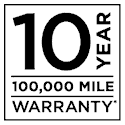
Some car owners are meticulous about maintenance on their vehicles, but others will wait until there’s a serious problem before taking it to a mechanic. While opinions vary on the frequency and extent of such maintenance, a regularly scheduled tune-up of some type can help prevent some problems.
What is a Tune-up?
A tuneup will generally involve inspection of the fuel, ignition, and emissions systems of your vehicle. It likely will include the replacement of some key components, such as the air and oil filters. Several parts might need cleaning or replacement, including spark plugs and fuel injectors. On older cars (those with distributors rather than electronic ignition), the rotor and distributor cap will need to be cleaned or replaced. Other parts that may need service include oxygen hoses, spark plug wires, fuel filter, PCV (positive crankcase ventilation) valve, and oxygen sensor. A mechanic might even adjust the engine’s timing and idle.
Every little problem is not caused for a complete go-over of your vehicle’s systems, but procrastinating until your vehicle can’t move is clearly waiting too long. Here are some early signs you might have an issue to be addressed:
Problems Starting
It might seem that a weak battery is to blame, but the problem could be with the alternator, starter, spark plugs, corroded or loose cables, or even the fuel pump. If a jump-start works, you probably have a weak battery, but other issues could be causing that weakness.
Poor Gas Mileage
A sudden drop in gas mileage could be the result of a bad oxygen sensor (which determines the gas/air mix to the engine), misfiring spark plugs, incorrect tire inflation, or perhaps even bad wheel alignment.
Rough Idling
If your car shakes when at an idle, the problem could be a dirty fuel injector or carburetor, a leak in a vacuum hose, old spark plugs, or corroded spark plug wires.
Check Engine Light
When that little indicator on your dashboard comes on, the culprit could be any number of things, from a loose gas cap up to a bad catalytic converter. Having your mechanic check it with a
diagnostic code reader is the place to start.
No Acceleration
This problem could go from an annoyance to being plain dangerous, depending on your circumstances. Try entering a crowded highway without the ability to quickly get up to speed. The issue could be a clogged fuel filter, dirty air filter, or even a catalytic converter failure, as well as a problem with a number of sensors, such as those for oxygen or throttle position.
If you’re experiencing one of these telltale signs of trouble, don’t just go to the mechanic and say, “My car needs a tuneup.” Explain the problem you’re seeing, and he should offer a course of action. It might require a specific remedy, or he might need to inspect the engine and other systems to find answers. In either case, keeping up on required maintenance can help you prevent minor annoyances from becoming major problems with your vehicle.
Image via Pixabay.com by DomAlberts


 Warranties include 10-year/100,000-mile powertrain and 5-year/60,000-mile basic. All warranties and roadside assistance are limited. See retailer for warranty details.
Warranties include 10-year/100,000-mile powertrain and 5-year/60,000-mile basic. All warranties and roadside assistance are limited. See retailer for warranty details.